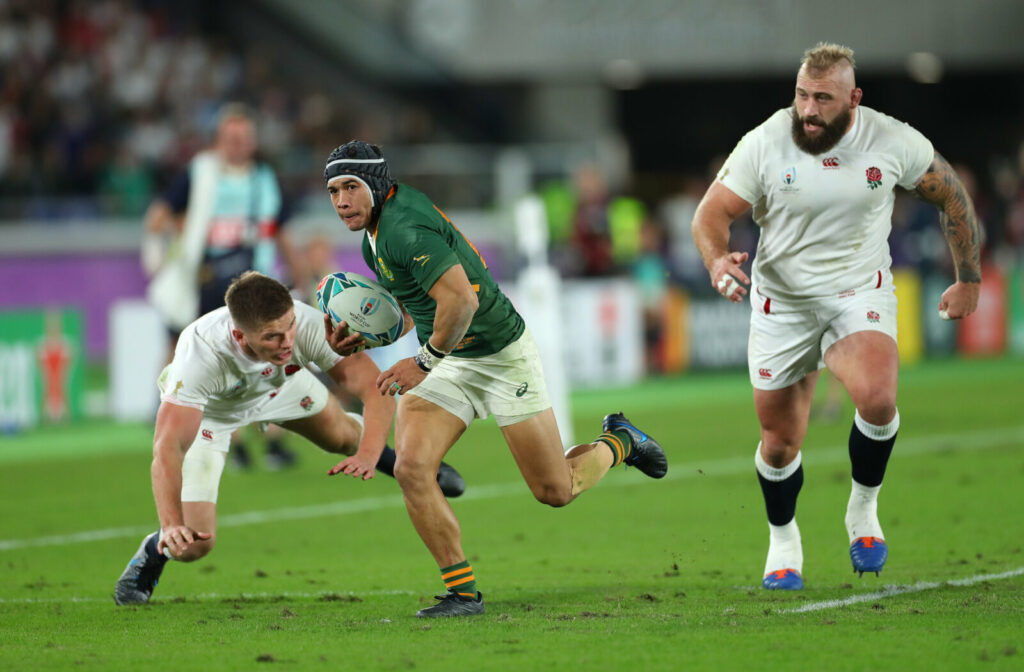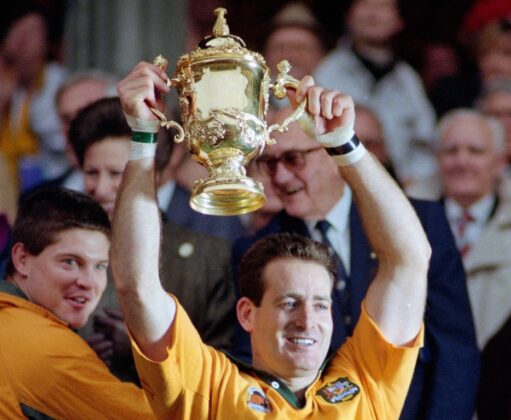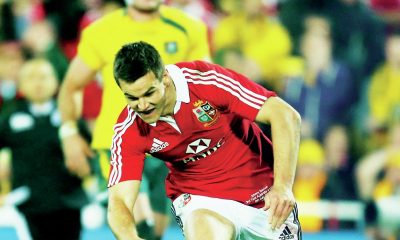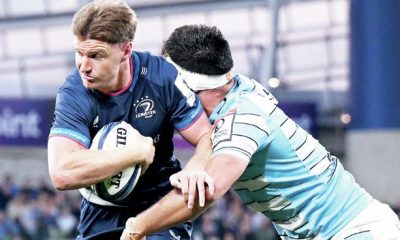
HAVING played for England when we lost the 1991 World Cup final to Australia gives me a shared experience with where the current squad are after their loss to South Africa last month.
At the time I was young and believed I still had a career, so I got ready for the next club game for Bath to press my case for England selection to make sure I stayed in the side.
If we’d had a whole summer to replay that final in our minds there’s a good chance it would have worn us down, but I cannot remember whether there was a review in 1991, and I do not recall being asked about the experience.
These reviews can do as much harm as good, as was shown when the 2015 post-World Cup review was leaked. Once the trust in a process has been breached there will always be a concern among players of leaks, and so they are likely to be more guarded in what they say.
The good news is that like the 1991 England players, the 2019 squad are straight back into the club scene, and many of them have found they are immediately involved in a relegation battle. This time that involves Saracens, the club with the most England regulars, while their big rivals, Exeter, have to get used to carrying the tag of being favourites to win the league.
For most of the current England squad being back with their clubs means the World Cup is already long gone – as it was for us.
Those who will be dwelling on it more are the England coaches and management, because they have to act on it.
Part of that has been done in public already, because Eddie Jones made the bold decision to bring out a book straight after the World Cup in which he made some commments about selection for the final – which included the admission that he should have made changes to the starting fifteen.
In the book he reflected at one stage that he stirred controversy over the last four years because he kept putting his foot in his mouth, and it made me think that those selection comments about Mako Vunipola and George Ford were more of the same.
It doesn’t help relationships within the team, and therefore it was not a very smart thing to say. It begs the question whether Jones really had to write the book at this time. What was the reason? Was it financial? Was it cathartic – and, if so, who did it help?
Whatever the answer, England will have to live with the pressure of being expected to win the 2020 Six Nations because of two factors which are trotted out every time – more players and more resources than any other nation.
However, the harsh reality is that despite those factors England have not always got a team good enough to win every tournament they enter, whether Six Nations or World Cups.
As for the performance of the 2019 team, Jones would have to be given a 9/10 for getting to a World Cup final by beating Australia and New Zealand in the knock-out stages. If England had won it, then it would have been 10/10.
Will the England head coach change his ways? I’d like to think we all grow as people, and I suspect Eddie has changed in the time span from the 2003 World Cup final to the 2019 final – and that he might change again.
The hardest thing for any coach is to keep producing a winning culture. Everyone knows that the right formula is a power pack with a great set piece, and a back row that can slow opposition ball down as well as carry strongly in attack. Add to that backs who have stardust, but are also ruthless, and you are in business.

Jones will have a good idea of the team he wants to pick for the Six Nations, but the team he can pick might be quite different.
I would look at it in terms of picking your best team for all games except Italy. The mission is to keep on winning, and to slide up-and-comers onto the bench to give them experience during the tournament.
Jones has a number of issues that also have to be resolved, and whether Owen Farrell plays at 10 or 12 is at the top of the list. I would make a hard and fast decision on Ford-Farrell, and get it done with. He can either play them together, or he can opt for
Farrell at fly-half, with Manu Tuilagi at 12 and either Henry Slade or Jonathan Joseph at 13.
If Farrell is injured, the good thing is that George Ford just slots in at 10 with the same centre pairing outside him.
Joseph or Slade is another choice Jones has to make, and it involves recognising that they come onto the ball differently and then picking which outside-centre suits his backline strategy best.
Ben Youngs might struggle this season, and whoever is the form scrum-half in England at the moment I would pick, whatever age they are.
I would also play Anthony Watson at full-back, because Elliot Daly has been too inconsistent under the high ball at international level. This would see Daly move back out the wing, where he will be competing with Jonny May, Jack Nowell and Joe Cokanasiga.
As for mission statements, Jones can say he’s not looking past the 2020 Six Nations – and is picking a team good enough to win it.
However, if I was in his shoes, I’d really try to change the England game. This could involve not getting too bogged down in phase play, and kicking more in attack – as in punch, punch, punch, and then one kick followed by another. England should change the dynamic, because we don’t see enough variation in the pace and direction of their game.
This means maintaining high levels of fitness, but, crucially, it also means playing smart rugby. It is what New Zealand used to do, and the England 2020 team have to bring it all together – sharp decision-making, fitness, lots of forward carriers, good kickers, good chasers, and good runners and finishers.
It will be a relief for many of the players to get back into camp with England, because it will take them away from the pressures of the club scene. Getting back to Pennyhill Park could be a bit of a release, and they could really get out and enjoy the Six Nations.
The great thing about the tournament is a sense of tradition, and by comparison with the World Cup, the overall pressure is not as great. Make no mistake, if you lose a Grand Slam decider it is big, because you do not get many opportunities – but at least the Six Nations comes round every year, whereas World Cups come round much less frequently in a playing career.
The motivation that took us to a Grand Slam in 1991 was losing the 1990 Five Nations Grand Slam match against Scotland at Murrayfield.
Then, in 1992, when everyone wanted to beat us, we found the physical and mental strength to win the Five Nations again with a second Slam.
As far as leadership is concerned, we had Will Carling as captain throughout that period. Farrell has had a challenging 2019, because he had a mixed Six Nations, and at the World Cup captained a side which had the ability to win big games – but didn’t have the ability to overcome South Africa’s focus and brutality in the final.
My belief is that the 2003 England world champion side would have found a way to win in the same circumstances. Martin Johnson’s team possessed at least half a dozen players – maybe even eight – who would have got into a World XV, whereas this current England side does not have that.
To be fair, nor does any other side, including South Africa. I was one of those who backed the Springboks to win the World Cup, but, after New Zealand beat them in the opening round, it seemed likely to be business as usual for the All Blacks.
However, apart from two brain-fade tries conceded by South Africa, they knew they could beat New Zealand. In the same way, even though South Africa were deserved World Cup winners, they are not in a different league to England, New Zealand or Wales.
It will be like that until one of those teams produces at least six players who can walk into a World XV – and if England want to go from being the number two team in the world, to being the best, that is what they should aim for in the 2020 Six Nations.



























You must be logged in to post a comment Login